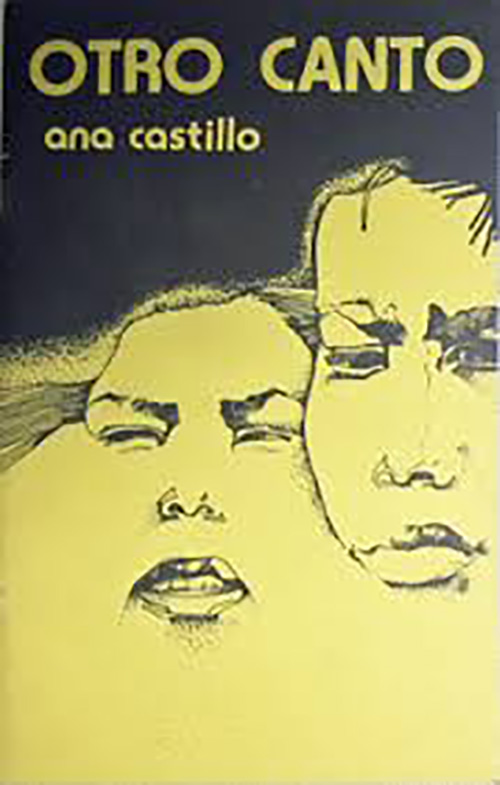Otro Canto (chapbook, poems, 1977)
 The poet’s early beginnings…
The poet’s early beginnings…
Like many Chicanas/os in the years immediately following the Chicano nationalist movement of the 1960s, Castillo saw the need to form alliances between Latinas/os in the U.S., and, of course, art became one important means of forging coalitions. Her first book of poetry, the self-published chapbook Otro Canto, pursues the theme of socio-political oppression of Third World women and men.
Read Modern American Poetry Article
“Like many Chicanas/os in the years immediately following the Chicano nationalist movement of the 1960s, Castillo saw the need to form alliances between Latinas/os in the U.S., and, of course, art became one important means of forging coalitions. Her first book of poetry, the self-published chapbook Otro Canto, pursues the theme of socio-political oppression of Third World women and men.”
Born and raised in Chicago, Castillo credits the rich storytelling tradition of her Mexican heritage as the foundation for her writing. When she was nine years old, she wrote her first poems following the death of her grandmother. In high school and college Castillo was active in the Chicano movement, using poetry to express her political sentiments. Her first published volumes of verse—Otro canto (1977), The Invitation (1979), and Women Are Not Roses (1984)—
Read Poetry foundation Article
“…[I]n a career that has sometimes seemed a dizzying adventure… With the help of Little Village activist Carlos Heredia and others, she published her first chapbook, Otro Canto (Chicago: Alternativa Publications) in 1977; two years later, she self-published a collection of ten pieces, including three in prose, entitled, The Invitation. Next, she brought together fifteen new poems to join with all seven poems from the second book and eight poems from the first to constitute parts I, II and III respectively of her more definitive collection, Women Are Not Roses (1984), published by Arte Público Press, the most important U.S. Latino publishing enterprise, which had just relocated from Chicagoland to Houston four years before.” —
